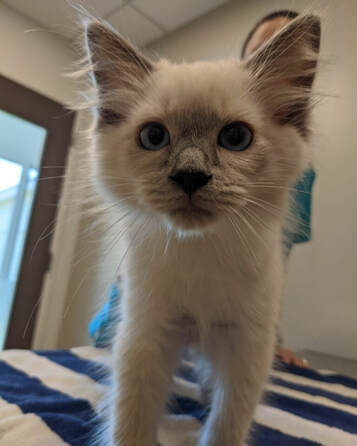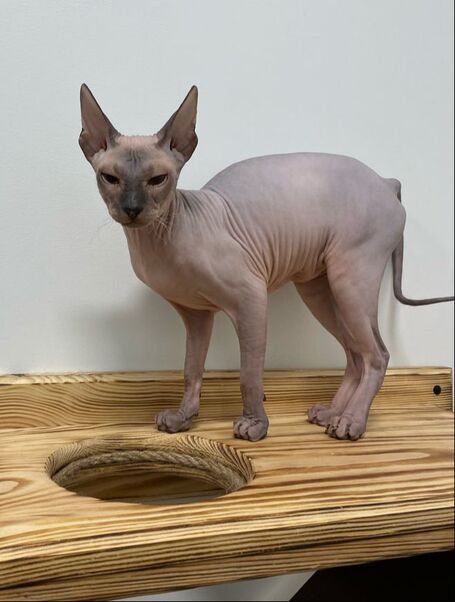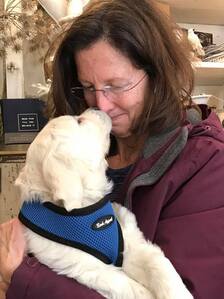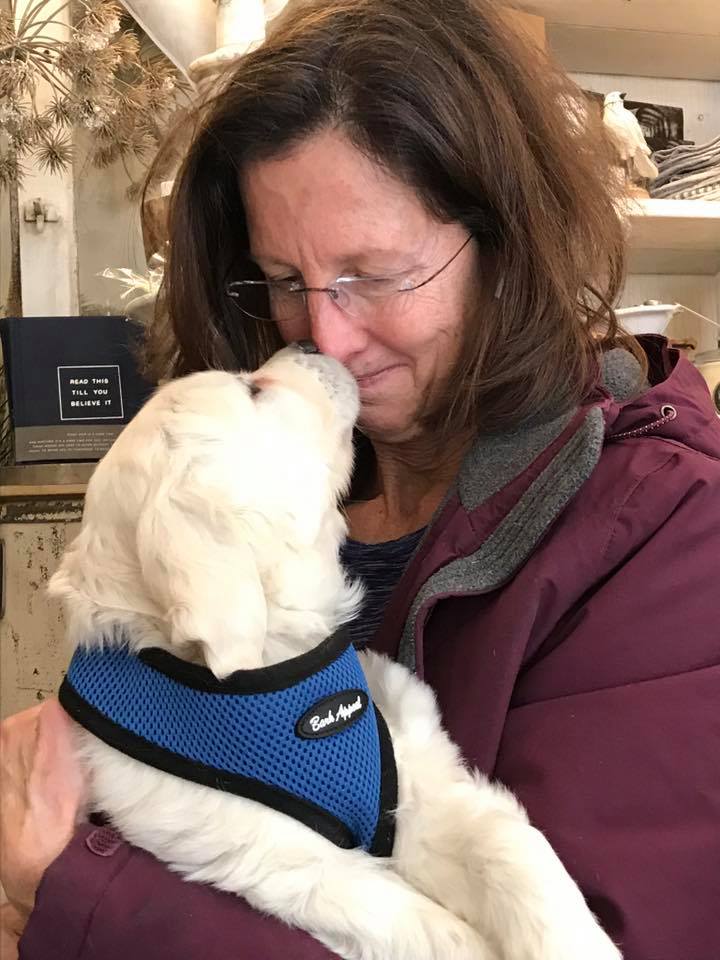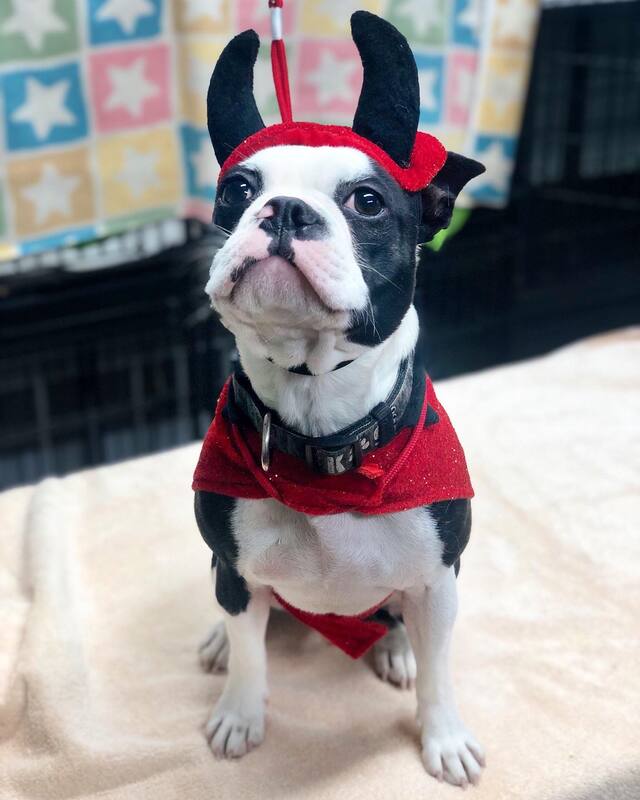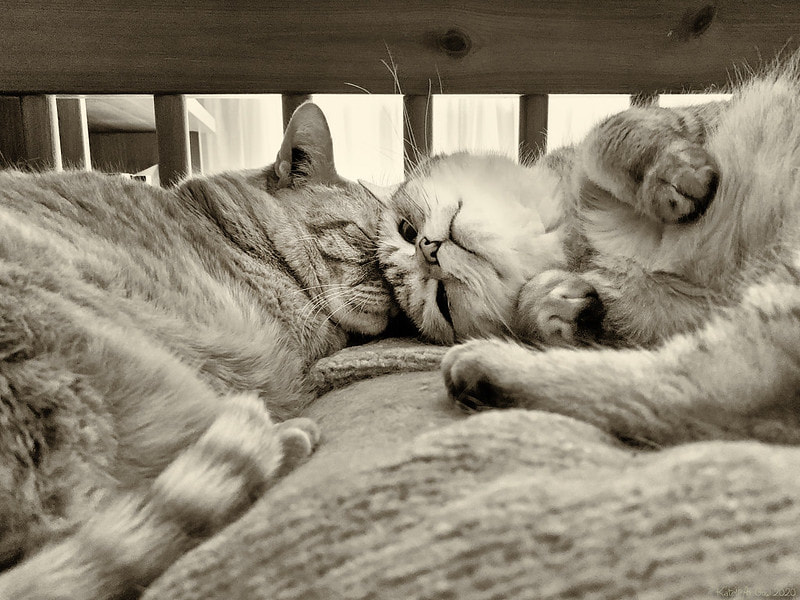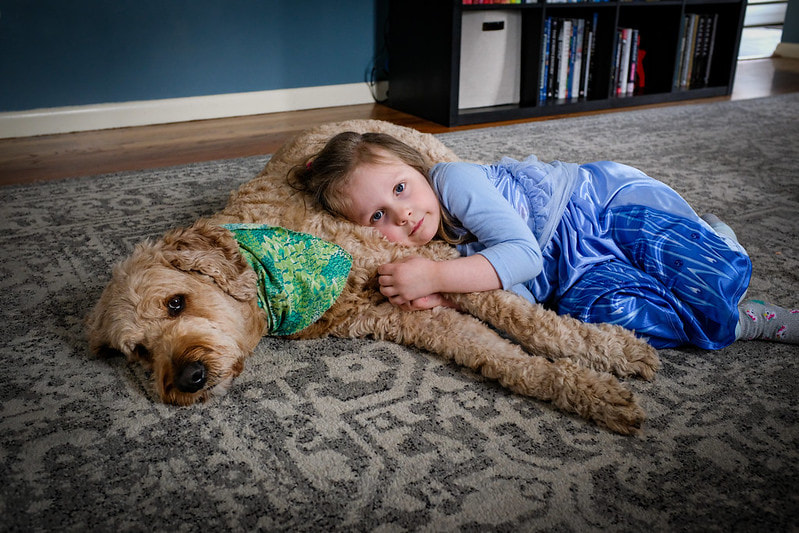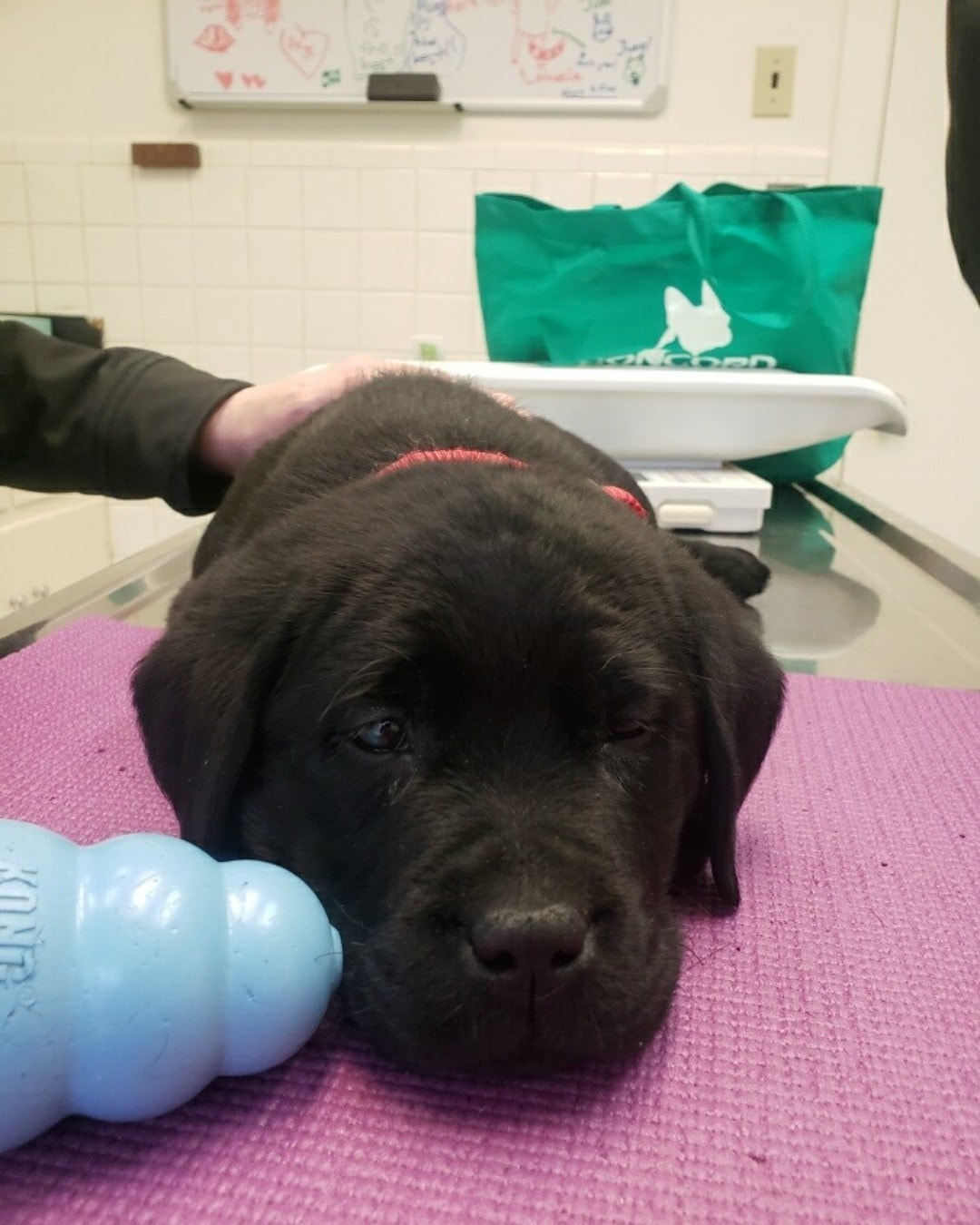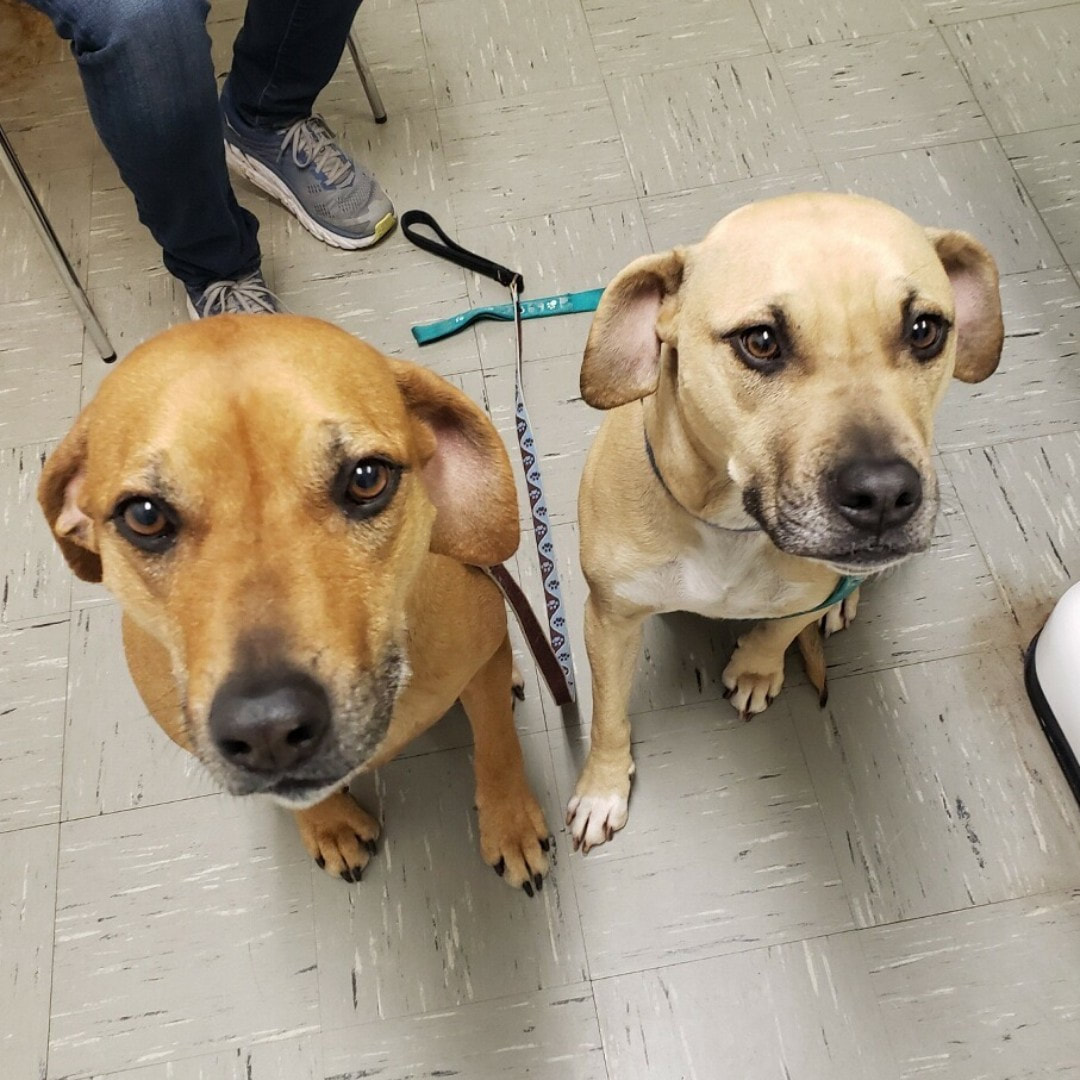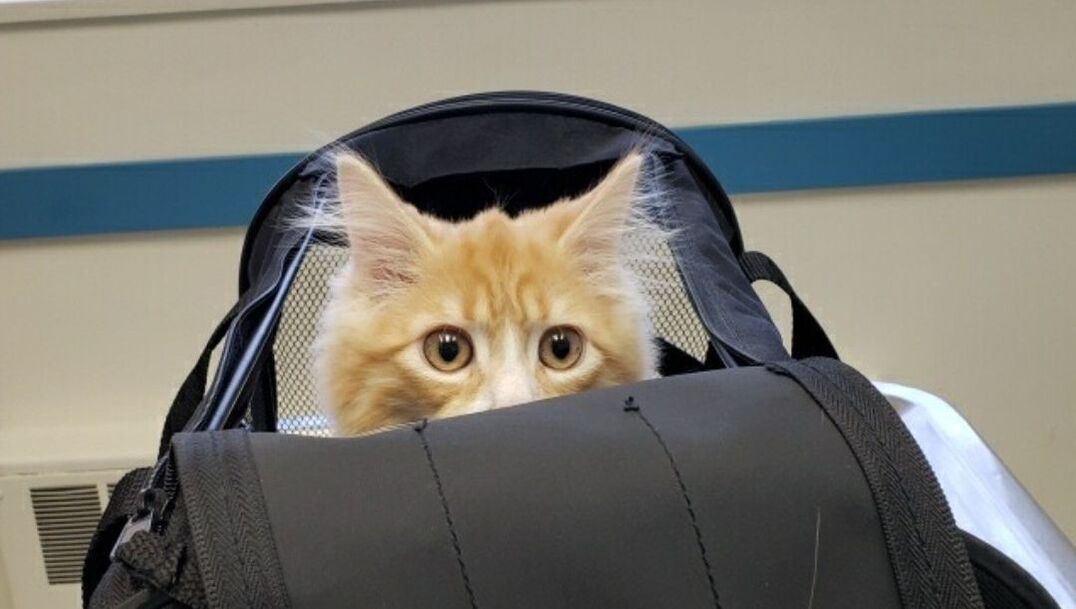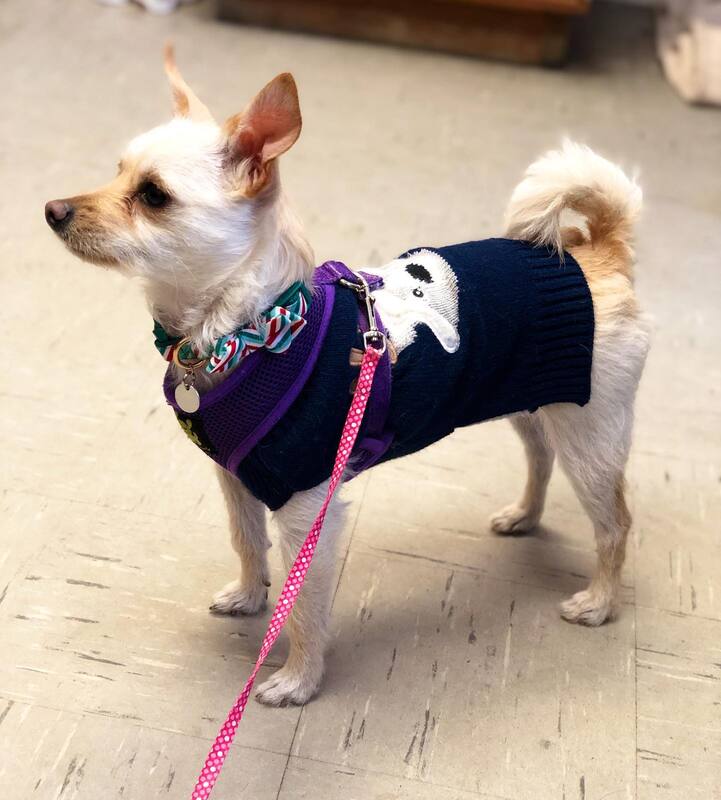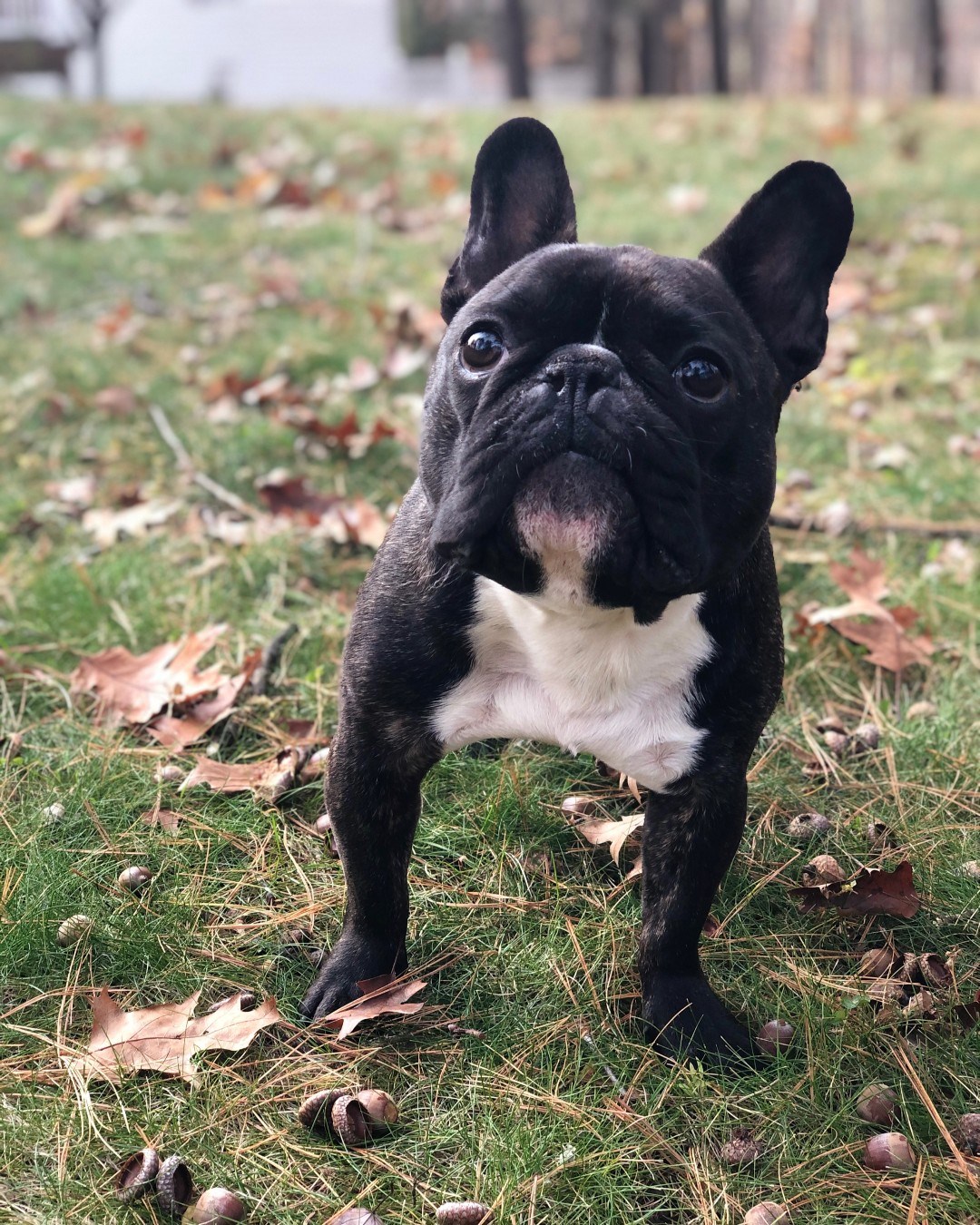|
Let’s face it: “surgery” is a scary word. The idea of bringing your pet in for a surgical procedure is daunting, and even a routine procedure like a spay or a neuter can be stressful if you’ve never been through it before. That’s why we’ve sat down with CAH’s own Dr. Kaitlin Rondeau in order to demystify the process and explain what to expect leading up to, on the day of, and in the days after your pet’s procedure.  Dr. Kaitlin Rondeau helps to demystify your pet's surgical procedure! Dr. Kaitlin Rondeau helps to demystify your pet's surgical procedure! The months before Your pet’s veterinarian will work with you to determine when a surgery might be beneficial to your pet. Spays and neuters are fairly routine and typically happen between 6-12 months. Depending on our vet’s findings during their checkups they may also suggest dental procedures, such as cleanings or extractions, or mass removals to get rid of any odd lumps and bumps. If your pet has never seen us before, we’ll want to book an initial checkup with a doctor prior to scheduling a surgery. From there we’ll also want to perform some tests to make sure your pet is healthy enough to undergo anesthesia. “With any patient we want to perform bloodwork to check liver and kidney function, since these are the organs responsible for metabolizing anesthetic drugs,” says Dr. Rondeau. “If your pet has other medical concerns we may also recommend further testing, such as an ultrasound.” At these preoperative visits we’ll also prescribe dogs a medication called Cerenia, which is an anti-nausea medication used to prevent vomiting under anesthesia. Cats do not require Cerenia. The night before surgery, your pet should have dinner no later than 6 pm, and the Cerenia should be given that evening. Water is okay including on the morning of the procedure, but your pet should not be fed overnight or the morning of the procedure.  The day-of When you arrive the morning of your pet’s surgery, our receptionists or technicians will go over paperwork and ask a number of intake questions. They’ll confirm that your pet was fasted and received any necessary medications, and will also ask about any symptoms of illness your pet may have shown recently. “If your pet has recently experienced symptoms like vomiting, diarrhea, lethargy, disorientation, or loss of appetite, that’s important to know,” Dr. Rondeau says. “Surgery can be taxing on your pet’s body, so we don’t want to move ahead if they’re already feeling under the weather.” While the procedures we perform here are very low-risk, our staff will also ask whether you would like CPR to be administered in the event of an emergency. We’ll always make an effort to contact you before doing anything outside of the scope of what we’ve discussed, but we want to get your permission to perform CPR in advance so we can take action immediately if necessary. Once our staff is finished with intake questions our technicians will bring your pet inside, and you can go home and try to relax! The attending veterinarian will call you after the procedure (usually early afternoon) to let you know how everything went, cover discharge instructions, and give you a pickup time. In the case of some procedures such as dentals, the doctor may also call you to discuss a plan after x-rays or an exam are performed. “Sometimes radiographs and sedated exams will reveal additional pathology that we weren’t able to notice during a normal exam,” Dr. Rondeau explains. “For example, we may discover a need for more dental extractions than we originally realized.” In cases like these, our doctor will give you a call to go over a plan before proceeding with any additional work. When you come to pick up your pet one of our technicians will go over discharge instructions one more time, and will answer any questions you might have before sending you on your way. But we like to keep in touch, so we’ll call you within the next day or two to make sure your pet’s recovering well. 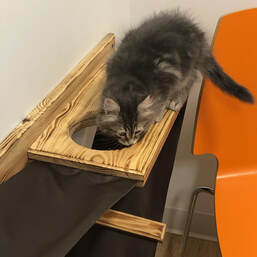 The weeks after Your pet may be a little loopy after coming up from anesthesia, so it’s important to make sure they’re supervised for the next 24 hours. That evening you can offer a small amount of food and water, about half of what your pet usually receives. If your pet had a dental procedure you may see a small amount of blood in their food or water dish - don’t panic, this is normal! Regular eating and drinking can resume the next day. Your pet will also be sent home with medication to help alleviate pain and limit their activity if they tend to be especially energetic. Typically you can start these medications the first evening your pet’s home, but precise instruction will be given at the time of discharge. For our spay, neuter, and mass removal surgery patients, you’ll want to heavily limit exercise for the next five days. “Basically, we want to make sure there’s no risk of your pet reopening their incision site,” Dr. Rondeau explains. “Keep them on a leash during walks, don’t let them go up or down stairs, and keep them away from other pets.” On the sixth day you can gradually start to increase your pet’s activity level, but you still want to take it easy during this time. The full healing process takes 14 days, so avoid long walks, play with other pets, bathing, or swimming until this has passed. Keep checking your pet’s incision site daily for swelling, redness, discharge, or missing sutures. If your pet had a dental procedure, don’t offer them any hard treats or chew toys during this time, but you won’t need to restrict their activity after the first day post-procedure. If you observe any facial swelling, bad odor, drooling, or mouth sensitivity let us know. If you think something you see doesn’t look right, give us a call at 978-369-3503, or send a photo to [email protected].
 Not that bad, actually. But we’re getting there and we're here to help you prep your pet! The air’s turning cold, the days are growing shorter, and winter is on the horizon. But as much as we all love sledding, snowball fights, and warm mugs of hot chocolate, winter also brings with it some unique petcare challenges that aren’t present during the warmer months. Keep your winter more delightful than frightful by following these quick tips for winter weather safety! Frosty Fleas (and Ticks, and Heartworm): If there’s one upside to winter temperatures it’s that all those nasty warm-weather parasites have died off, right? Wrong! Ticks can be active in temperatures as low as 40 degrees, while fleas can get all the way down to 33 degrees. And while New England winters are colder than this on average, it’s not uncommon to end up with a few unseasonably warm days in the middle of the coldest months. If you’re thinking “Wow, what beautiful weather!”, then unfortunately so are those pesky parasites. That’s why we strongly recommend continuing flea, tick, and heartworm prevention year-round, no matter how cold it is. Wipe those paws: The same salts that prevent us from slipping on icy sidewalks and injuring (or embarrassing) ourselves can be rough on a dog’s paws. Wiping your dog’s paws down after a walk can prevent irritation to their paw pads, and will also keep them from licking off residue that can be harmful or toxic. Depending on how sensitive your dog’s paws tend to be, you can also consider using booties or paw balm to help protect them during your winter outings. There’s one piece of advice we always give (and this one’s good year-round): to give us a call whenever you’re unsure! If you’ve got winter-weather questions, think somethings not right with your pet, or want to schedule a visit or stock up on essentials, give us a call!  Mind your mercury: You know, like they used to put in thermometers? Just like humans, dogs and cats can be sensitive to the cold, and can suffer from frostbite or hypothermia. Limit their outdoor time once temperatures hit freezing, and consider putting a sweater on puppies or dogs with short coats. Don’t leave them alone in your car either; a freezing car can be just as dangerous as a hot one! Get ready to get snowed in: There’s a big difference between “Snow day” and “Snow week.” Hope for the best but plan for the worst by making an emergency kit ahead of time, so you’ll be prepared in the case of an extended power outage or a prolonged snow-in. We recommend keeping at least three days of your pets’ food, water, and medication, as well as some special toys and treats to help keep them relaxed while they’re cooped up. And be sure to check out mass.gov’s Winter Storm Safety Tips for general advice about keeping your home and human family members safe as well!  Check your car: The inside of your car’s hood might not sound like a cozy resting place to you, but to your cat a warm, enclosed space like that is prime napping real-estate. Before starting your car make sure any cats in your house are accounted for, and check your hood or make some noise to flush out any feline stowaways. Chip ice and chip pets: If you’ve sniffed one snowflake, you’ve sniffed them all. A thick blanket of freshly-fallen snow looks beautiful to us, but it can also cover up familiar scents and make it harder for a wandering pet to find their way back home. Prevent your dogs from getting lost by keeping them on a leash during winter walks, and increase your odds of reuniting with a lost dog or cat by microchipping them and giving them a well-fitting collar with up to date contact information. For some additional winter petcare advice, check out our previous blog on the same topic. Now bundle up, light a fire, and let’s make this winter a great one!  It’s getting to be that time of year again! There’s a chill in the air, decorations are popping up on your neighbor’s lawns, and your kids are probably deep in contemplation over which superhero, princess, or scary monster they want to be this year. In just a few short weeks your house will become a treasure trove of seasonal snacks and sweets. But while your kids will enjoy digging into their sugary hauls (and you might enjoy sneaking a few pieces for yourself, we won’t tell), Halloween candy can actually prove very scary for your pets! We’ve all heard that chocolate is bad for dogs, but there are plenty of other lesser-known pet toxins that have slapped on a costume and snuck their way into your home. To help keep your pets safe this Halloween season, here’s a list of a few of the biggest dangers to watch out for! 
Uh-oh, my pet got into something! An ounce of prevention is worth a pound of cure, but we know it’s not always that simple. If your pet got into something they shouldn’t have, call us or an emergency service immediately. Depending on what your pet ate, how much, and how long ago, we may recommend monitoring for symptoms, inducing vomiting, or coming in for supportive care. 
So what can I feed my pet? We get it. While it’s important to keep your pet safe, you don’t want them to feel left out on a night like Halloween! If you want your dog to be able to join you in your post-Trick-or-Treat feast you can offer them a few high-value treats. You can make a game out of it with your cat or dog with an interactive food puzzle!
Halloween should be a fun night, and the last place you want to spend it is an emergency room. If you’re looking for more ways to keep your pets safe check out last year’s Halloween blog post for a few general tips on keeping your night fun-scary, instead of actual-scary. And with all that said stay safe, and Happy Halloween! Effective immediately, CAH will not accept any new grooming pets or book future appointments for pets that aren’t also patients of the hospital.  A happy effect of the pandemic has been an explosion in pet ownership. Trapped at home, many of us are looking for some companionship and unconditional love in the form of a new furry family member. While the proliferation of new pets is amazing, it’s straining the capacity of animal care services across the board. Many veterinary hospitals have stopped taking new clients and veterinary emergency hospitals either won’t see pets whose illness isn’t life-threatening or have very long wait times because they are simple working at full capacity. 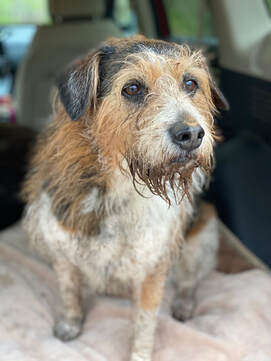 We are extremely fortunate at CAH that we have capacity to care for our current pet patients while still taking on new patients. Our new and larger building plus the addition of two amazing veterinarians to our team have allowed us to continue to serve our community’s veterinary health care needs. While we have had room on our hospital side to accommodate new pets while still serving our current patients, the same can't be said about our grooming service. A shortage of groomers combined with the surge in pets that need regular grooming have stretched our grooming capacity to the limit. Our two talented groomers, Cindy & Charlene, are booked out over three months and have long wait lists. Since most dogs require grooming every five or six weeks, we are simply not able to meet the needs of everyone who wants to use our grooming services. We don’t have room to expand our grooming space, nor can we clone our amazing groomers, Cindy and Charlene, despite our best wishes. Because of this, we are limiting our grooming services. Effectively immediately, we can not take on any new grooming pets. This includes pets that are patients of the Concord Animal Hospital that haven’t been groomed with us previously. This is the first group we will add back once we feel we can properly take care of additional pets’ grooming needs on a consistent basis. For pets that come to us for grooming but not for veterinary care, we will honor appointments that we have previously booked but will not book appointments going forward. As always we are here to discuss any questions or concerns that you may have. 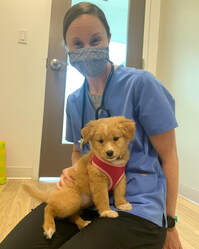 Hurricane season in New England lasts from June to the end of November, but emergencies also come in less predictable forms throughout the year, such as house fires and tornadoes. When disaster strikes, your pets are almost completely dependent on you to survive. Follow Concord Animal Hospital's 5-point emergency checklist to keep your pets safe during an emergency. 
If you’re about to adopt a new cat or are thinking about adding one to your family, let us be the first to say congratulations! And if you’ve recently adopted a new kitten and have a hundred different questions about what to do now, we’re here to help! Whether you’re a first-time cat owner looking for guidance, or a cat connoisseur looking to brush up on your pet-ownership expertise, here’s a handy list of questions, answers, and information you might find useful.
What is a Vaccine? A vaccine exposes the immune system to inactive or incomplete disease-causing agents to train it to quickly and effectively respond if it ever encounters the real deal. Typically we recommend vaccinating new kittens with the pankluemia, rhinotracheitis, and calvivirus (PRC) vaccine and the rabies vaccine. We may also recommend the feline leukemia vaccine for outdoor cats. Vaccines are safe and effective. Reactions are rare and not typically life threatening when treated properly. For more information on vaccine reactions, what to watch out for, and how to treat them, check out our April blog post. Fleas, Ticks, and Parasites, Oh My! Nobody wants fleas and ticks on their pets or in their homes. Fleas can transmit intestinal parasites, and while tick borne diseases like anaplasmosis are less common in cats than in dogs, they’re still possible. The good news is that flea and tick preventatives are safe, effective, and easy to give. We typically recommend topical preventatives like Revolution for cats, since cats are less likely to take a chewable tablet. We also advise continuing flea and tick preventatives year-round, as even in winter ticks can survive in temperatures as low as 33 degrees!
Spaying and Neutering In addition to preventing unwanted pregnancies, spaying and neutering your cats has a number of health benefits. Spayed females have a decreased risk of mammary cancer and a uterine infection known as pyometritis. Neutered males are less likely to run away, mark territory by urinating, or be attacked by other cats. They also have no risk of testicular cancer. Our veterinarians can help you decide whether spaying/neutering makes sense for your cat, and the best age at which to do so. 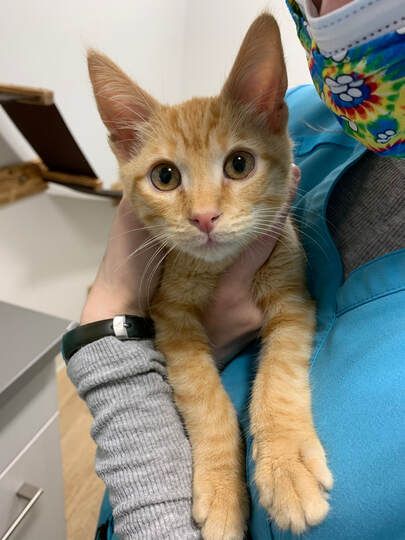 Protect your cat's beautiful smile with routine dental care! Protect your cat's beautiful smile with routine dental care! Caring for those Purr-ly Whites Let’s talk teeth! Much like humans, pets require dental care or they run the risk of plaque, tartar, gingivitis, and other periodontal diseases. Our veterinarians perform dental checkups as part of your cat’s annual visits, but you should brush your cat’s teeth at home as well! We recommend brushing daily, starting with short sessions to get your cat used to having their gums and teeth touched, before moving up to 3-5 minute sessions. For more info, check out our five-step video on cleaning your pet’s teeth. Microchipping Microchipping your pets is a safe, cost-effective way to dramatically increase the chances of finding a lost pet. A microchip is a small electronic device about the size of a grain of rice, implanted under the skin with a needle. If a lost pet is found and brought to a veterinarian or shelter they can scan for a chip, which can then be used to contact you. The microchipping process is about as painful as a normal vaccine and can be done at any routine visit, though we often implant them during sedated procedures such as neuters and spays. When to Call the Vet Over the lifetime of your cat, you’ll have moments where you wonder, Is this worth a phone call? At times like those remember the golden rule: When in doubt, always reach out. It’s what we’re here for, after all! You can call us at 978-369-3503, or email us at [email protected]. If you notice any of the following symptoms, call us or a 24-hour emergency vet immediately, as your cat may be experiencing a medical emergency:
That’s all very helpful, but…
As always, these blog posts are intended to provide general information about your pets. If you have questions not covered here or questions about your specific cat, feel free to get in touch! We’re always happy to have a quick cat chat.  Molly helping up front after her vaccines! Molly helping up front after her vaccines! For new puppy owners, the number of vaccines available for dogs can feel overwhelming. Concord Animal Hospital is here to help! Here are answers to a few common questions: What is a vaccine? A vaccine exposes the immune system to inactive or incomplete disease-causing agents to train the immune system to quickly and effectively respond when exposed to the real deal. It is a safe way to protect your dog from some scary, often life-threatening diseases. Are vaccines safe? There are isolated cases of allergic reactions, but these are rarely life threatening when treated appropriately. We generally limit the number of vaccines given at once – your Veterinarian will discuss the safest vaccine schedule for your puppy. Call us or a 24-hour emergency hospital immediately if you observe hives, swelling around the face or vomiting. 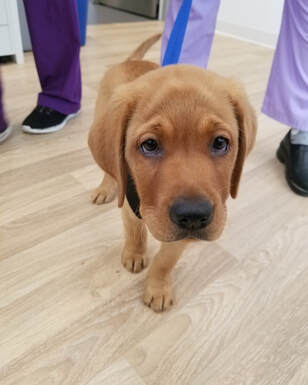 Ernie listening intently to his Vet Ernie listening intently to his Vet What are the core vaccines that CAH Vets recommend? There are two vaccines that we strongly recommend for your dog:
Important to know: if your dog is bitten or bites another animal, get the contact information of the other animal’s owner if possible and call us immediately. We will go over state regulations around rabies booster vaccines and quarantine. What other vaccines do CAH Vets recommend? The following are non-core vaccines. We will work with you to assess your pet’s risk of contracting one of these diseases and decide together if your pet should receive the following vaccines.
Concord Animal Hospital's tips to keep your pet safe from ticks and tick-borne illnesses 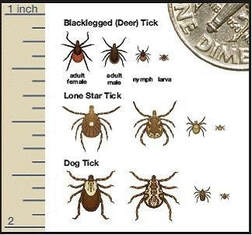 Our clients are calling daily with questions and concerns about ticks - we are here to help! Here are answers to the four top ticks questions local pet owners are asking our medical team. What Kind of Ticks Are in Our Area? There are three main types of ticks in the Concord, Massachusetts area:
While people follow precautions for keeping themselves safe from ticks such as using bug spray and wearing long pants and socks, it’s important to do the same for our four-legged friends, too. 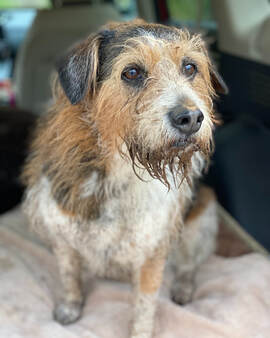 Hopefully Knuckles is just bringing home a little dirt, no yucky ticks! Hopefully Knuckles is just bringing home a little dirt, no yucky ticks! How Can I Keep My Dog Safe from Tick-Borne Diseases? Our veterinarians at Concord Animal Hospital strongly recommend using tick preventatives such as Bravecto or Simparica/Simparica Trio. While these chewable tablets are very effective at preventing tick-borne illnesses, they do not repel ticks. Instead they kill ticks several hours AFTER the tick bites your pet. For this reason, some clients double-up with a repellent collar in addition to a chewable tick preventative. Talk to one of our veterinarians to determine the best product for your pet given their health history, potential exposure to ticks and lifestyle. Should I use a tick preventative year-round? Yes, yes, and double yes! Frost and freezing temps DO NOT kill ticks. Ticks are dormant but come back to life in only 40 degrees - a high often achieved even in the coldest months. Our veterinarians see plenty of dogs with tick-borne illnesses throughout the winter. Our vets also suggest taking added precautions such keeping your dogs out of long grass or and away from undergrowth. These areas are where dogs like to sniff and explore, but they are also prime hangouts for ticks. After a walk, the American Kennel Association recommends checking some spots you might forget to look, such as inside ears and between toes, to make sure your pet didn’t bring any ticks home with them.
What Do I Do If I Find a Tick on My Dog?
If you find a tick on your dog, remove it as soon as possible! If it hasn’t attached itself yet, there is no risk of tick-borne illness for your pet. If it has attached, grasp the tick with a pair of tweezers as close to the site of attachment as you can and pull straight back. If you have found an attached tick, particularly one that is engorged, the MSPCA advises noting the date and time to discuss with your veterinarian. Watching for the following symptoms, but be aware that symptoms may not appear until several weeks or even months after exposure:
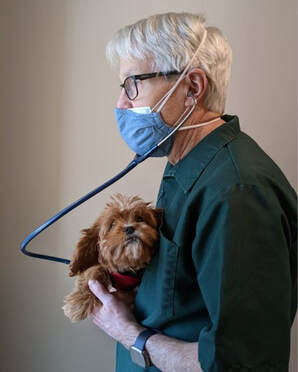 Dr. Hardie giving a listen to Gigi's little heart Dr. Hardie giving a listen to Gigi's little heart Vaccines are an important piece of your pet’s preventative health care. A vaccine exposes your dog or cat’s immune system to an inactive or incomplete disease-causing agents to train the immune system to quickly and effectively respond when exposed to the real disease. It’s a safe way to protect your pet from some scary, often life-threatening diseases such as distemper and rabies. The benefits of vaccines typically far outweigh the risks of a vaccine reaction. There are isolated cases of pets having allergic reactions to vaccines, but these reactions are rarely life threatening when treated appropriately. At CAH, we want pet owners to know what a vaccine reaction looks like and when a reaction requires medical attention. “Seeing your pet have a vaccine reaction can be frightening,” says CAH veterinarian Dr. Bradford Hardie. “It’s important to understand what reactions are mild and short-lived and which are medical emergencies.” Here are the six things all pet owners should know about vaccines reactions: 
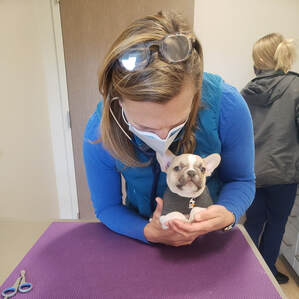
It’s been a year since COVID hit and a year since CAH has allowed clients into the building for their pets’ appointments. As with other COVID-imposed limitations on our lifestyle, we’re all sort of over it. We know many of you are all wondering when you’ll be allowed into this lovely new building of ours. Here's the scoop! 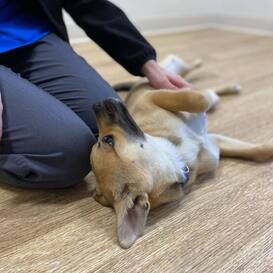 Ginger enjoying her belly rub Ginger enjoying her belly rub WHY HAVEN’T VETERINARY PRACTICES ALLOWED CLIENTS IN WITH THEIR PETS? Over this past year you’ve been allowed into grocery stores, restaurants, and doctors offices. Why is the veterinarian different? Veterinary medicine doesn’t allow for social distancing. For every pet's exam, two technicians assist a doctor in performing a physical exam, administering medications and vaccines, and performing blood draws. Allowing clients into every exam adds dozens of new exposure opportunities for our clients and our team every day, hundreds per week. While you are permitted into your doctor appointments, these appointments are not possible without you present. While not preferable, it has been possible to deliver healthcare to pets while their owners wait outside throughout this pandemic. Few veterinarians have chosen to allow clients into their buildings during this time. As a profession, most of us determined that the risk to our clients' and team's health and safety outweighed the benefits. Additionally, if CAH needed to close due to a COVID-19 outbreak, we would not be here to care for your pets.  Bubbles enjoying the cat climbing wall Bubbles enjoying the cat climbing wall WHEN WILL I BE ALLOWED IN? Veterinarians and veterinary workers in Massachusetts are eligible for the COVID-19 vaccine starting in mid-April. We plan to give our team a chance to be fully vaccinated and then begin welcoming one client in (likely still masked) with their pet in by July, hopefully sooner. Some transactions will still be done curbside, such as picking up food or prescriptions and grooming and technician appointments. Many of us have know you for years (decades even!) and we really miss you - it will be good to have you back. Also, we are beyond excited to FINALLY show you all our new building! FINALLY, OUR THANKS TO YOU
It's hard to find the words to express our gratitude to you all for trusting us to bring your pets into the building without you. This year has been very hard for parents of nervous pets and very sick pets. We also know that it’s tough for our new pet parents who’ve never met us in person – we’re asking for trust we’ve had no chance to earn. Thank you all for your trust and patience over the past year and for continuing to allow us to do the job we love, caring for your pets. Proper Paws' Judy Bernard on Training Tips for Pandemic Puppy Owners (part 3 of 3)
While the idea of returning to our pre-pandemic lives might be exciting for us humans, we must warn you that the road will be rocky for many pets. This will be particularly true for puppies who have only known a world where they are surrounded by their beloved humans. We humans have been home all the time: not going into work, not vacationing, not visiting friends & family, and not going out to dinner. As we receive our vaccines and begin to venture out, our puppies might have a problem. Fortunately, Judy has thoughts on how we can prep our puppies and dogs for the changes coming their way. 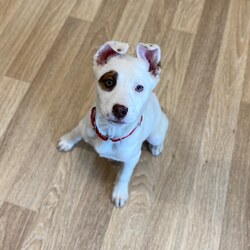 Stella by Starlight and puppies like her have been enjoying lots of time with their humans Stella by Starlight and puppies like her have been enjoying lots of time with their humans Katherine: How do you expect puppies to react as their owners begin to venture out of the house without them? In some cases, for the first time in these puppies’ lives? Judy: Separation issues are bound to happen in a time where we are all working from home and our dogs have gotten used to us being here. Let’s face it: we are all pack animals and having our pack around us all the time is very comforting. That said, reality will return and our puppies and dogs will need to get used to us NOT being home 24/7. The key to making sure they are as unaffected by this changes as possible is to start practicing now. Katherine: How should we practice leaving our puppies and dogs alone? Judy: Here are some quick thoughts on how to make your dog’s transition back to ‘normalcy’ as uneventful as possible. Set up a regular routine where you leave the house without your dog. Try to do this as close to your expected normal time as possible and do it every day. Start with short trips away, like to check your mailbox, and extend the trips as your dog gains comfort and confidence. Set your dog up for success as you train them to be alone. Make sure the dog’s physical and mental needs are taken care of before you leave. Feed and exercise the dog and make sure they have eliminated. When you leave, make sure your pet is in a puppy/dog proof environment. A crate is preferred for young puppies who may eliminate, chew things, or otherwise get into trouble. You may need to revisit crate training prior to starting this routine if your puppy/dog isn’t comfortable being in the crate. Give them a stuffed Kong or other safe high value treat to work on while you are gone. Make leaving and coming as much of a non-event as possible and do it multiple times a day. The more practice the dog gets with short, happy absences the better. 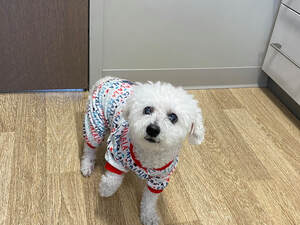 Suzie getting mentally prepared for a little more alone time Suzie getting mentally prepared for a little more alone time Katherine: What can owners do if their dog doesn’t react well to being left along? Judy: If the dog reacts poorly, stop and re-evaluate your plan. You may have to start with smaller steps, like leaving the room but not the house to begin with. It may help to use an automated food delivery device to associate your leaving with a steady flow of food. If your dog will not eat or engage with a high value treat (like a stuffed Kong) in your absence this is a sign of heightened stress and anxiety. In the case of extreme anxiety, fear, or stress you may need to consult with your veterinarian and/or a behavior professional for a behavior modification plan. Signs of extreme anxiety/stress include:
Part 2 in a 3 part series with Proper Paw's Judy Bernard on socializing puppies during COVID-19
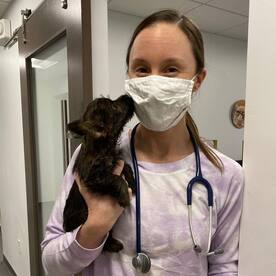 Tiffany sneaking in a kiss while in to see Dr. Rondeau Tiffany sneaking in a kiss while in to see Dr. Rondeau Katherine: What are you recommending to new puppy owners to get their pups ready to see the vet without their owners? Judy: I recommend spending time each day getting your pet used to the things they will see and experience while at the vet, AND associating those things with high value treats. This will help lessen the stress and anxiety they will experience when they do visit the vet. Katherine: What are some of the activities you find work well? Judy: Here are some things you can do to help your pet with future vet visits:
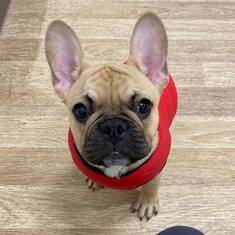 Puppy Rhody was was happy to play during his vet visit! Puppy Rhody was was happy to play during his vet visit!
Katherine: Any watch outs new owners should be aware of? Judy: Remember these exercises should be a fun game for your dog, if at any point the dog begins to show signs of stress or anxiety (tail tucked, head lowered, growling, backing away), STOP, jolly things up, play tug or fetch (whatever your dog likes), and FEED those high value treats! If the fear persists, call a dog training professional familiar with cooperative care training. Vet visits should be fun, if we play pretend vet at home we get our puppy/dog familiar with all the things they will see while they are at the vet. By associating all of those pretend vet actions with high value food reinforcers we are setting the puppy/dog up to have as stress free experience as possible. Part 1 in a 3 part series with Proper Paw's Judy Bernard on socializing puppies during COVID-19 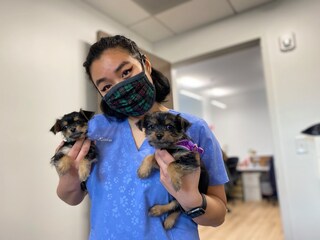 Adorable puppies Boba & Mochi with CAH Tech Eunice Adorable puppies Boba & Mochi with CAH Tech Eunice A happy effect of the pandemic is what we in the biz are calling pandemic puppies. With the activities that take us humans away from home on hold – commutes, long work and school days, travel for work and fun, nights out – many of us have decided that this is a great time to bring home a new four-legged friend. We have more time to train them and lots of time to enjoy them. For many families, a new pet is a bright spot, a way to make this complicated time special. As much as this is a fabulous time to bring home a new pet, the pandemic-enforced isolation presents specific challenges for owners of new puppies, but we’re here to help! Concord Animal Hospital’s Katherine Wilson spoke with Judy Bernard, owner of Proper Paws Dog Training right here in Concord, Certified Professional Dog Trainer-Knowledge Assessed, and member Association of Professional Dog Trainers to get her thoughts on how new dog owners can face the challenges the pandemic presents. The result is a three part series for new puppy owners:
A dog that is not exposed to a variety of stimuli during this critical period is at risk of developing behavior problems later on."  Bao in for his first visit with us Bao in for his first visit with us Katherine: For our new puppy owners, can you explain what is puppy socialization? Judy: First let me tell you what puppy socialization IS NOT. Puppy socialization is not having your new puppy play with every dog in the neighborhood. It’s not making your dog walk up to noisy garbage trucks or school buses that frighten them. It’s also not having every person that walks by them on the sidewalk stop and pet them! Even during a pandemic, we can socialize our dogs quite well while still maintaining appropriate social distancing. In some cases, it makes it EASIER! Socialization is exposing your new puppy to as many new and novel experiences as you can in a way that is positive and enjoyable for the puppy. Puppies go through a critical developmental period from about 3-12 weeks where they are most amenable to experiencing new things. This period is called the Primary and Secondary Socialization period. This period is tied to the development of social patterns and provides a foundation for many adult dog behaviors.1 In short, a dog that is not exposed to a variety of stimuli during this critical period is at risk of developing behavior problems later on. 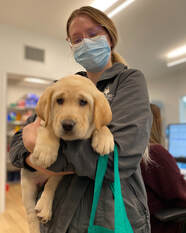 CAH Tech Ali giving Swizzy a lift CAH Tech Ali giving Swizzy a lift Katherine: How should new puppy owners socialize them? Judy: It’s really important to carefully expose your 7-14 week old puppy to lots of novel stimuli. This means taking the dog for rides in the car, walks on all different substrates, climbing in out and of boxes, eating out of different dishes, seeing different animals (cats, horses, chickens), and generally experiencing every possible place or thing you might expect your dog to go and see when they are grown. Keep your trips short and enjoyable! Make sure you have plenty of yummy treats with you, if the puppy seems worried – feed them. While puppy play dates with other puppies of similar age, size and temperament are a PART of socialization, socialization doesn’t begin and end with puppy playdates. Katherine: What else should new puppy owners know about socializing their dog? Judy: Socialization also does not begin at 7 weeks or end at 12 weeks. Breeders can do a lot to help a dog develop resilience in their adulthood with early handling, brief interludes of separation from the pack, taking the puppies on rides in the car, introducing them to crates, etc.2 Older puppies that are rescued can also benefit from CAREFUL exposure to novel stimuli. Older puppies tend to be more fearful but this doesn’t mean we should stop socializing. It does mean we need to be careful to make sure the experiences your dog is getting are positive. Make sure you have an ample supply of yummy treats on hand and use them to help your dog associate the new things they are seeing with good treats. Never force your dog to approach something it fears, no matter how silly it may seem. Instead, let your dog choose the distance they want to keep and help them associate that very scary garbage can, vending machine or snowman with something good by feeding them every time they see that scary thing!
Check back in February for part 2 in our Training Tips for Pandemic Puppy Owners: Helping your dog with vet visits during a pandemic.
It's the time of year to write our New Year's resolutions. This year lets get our pets in on the act! 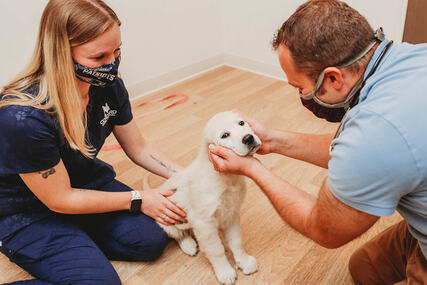 How COVID-19 is impacting pet health Pet obesity was already on the rise before the pandemic, with over half of all cats and dogs in the U.S. overweight or obese. This problem has intensified along with the pandemic according to a survey from Hill's Pet Nutrition, conducted in partnership with Kelton Global. One third of pet parents with an overweight pet say their pet became overweight since the start of the pandemic. Many of us are home all day, continually giving pets treats and exercising less. All of this comfort and indulgence can put your pet at risk for serious health issues. According to CBS News, common obesity-related conditions for dogs and cats include arthritis, bladder and urinary tract disease, diabetes, as well as excess stress on the heart and joints. How can you tell if your pet is overweight? As Dr. Wilson, a veterinarian at Concord Animal Hospital (CAH), explains, a good indicator of whether your pet might be packing some extra pounds is to take a close look at your cat or dog. “If you see their ribs, they are too skinny. If you can’t see their ribs and you can’t feel them with your hands when you rub the side of their chest, your pet may be overweight.” How can help your pet maintain a healthy weight? You can dramatically improve your pet’s quality of life and life expectancy—not to mention, avoid additional veterinary bills—when you help your cat or dog maintain a healthy weight. We can help you do this in 2021! Dr. Wilson has five tips for pet owners: Concord Animal Hospital’s 5 New Year's resolutions to keep your pet’s weight in check: 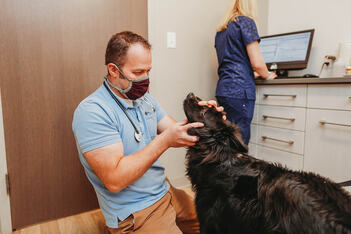
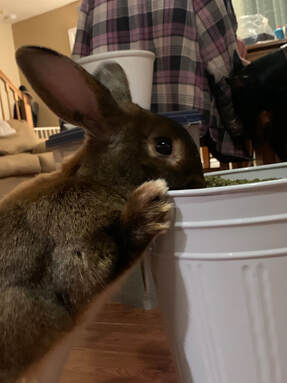
Wishing you all a very healthy and happy 2021!
 Five years into ownership of Concord Animal Hospital and the Wilson’s are feeling grateful. A little over five years into ownership of the Concord Animal Hospital, and Dr. Wilson and I (Katherine Wilson) are reflecting on the journey we’ve taken with our team. With Thanksgiving approaching during a year like no other, here are five things we’re grateful for:  Our team of Veterinarians, who are supported by almost 20 Technicians & Client Service Representatives Our team of Veterinarians, who are supported by almost 20 Technicians & Client Service Representatives
During a challenging year we have a lot to be thankful for. We hope you are also able to find your silver linings during this Thanksgiving. From all of us at CAH, we wish you and your families (including the furry family members!) have a safe and happy Thanksgiving!
You've all heard the jokes: COVID-19 keeping pet owners home-bound is a dog's dream come true, a cat's worst nightmare. While our canine and feline friends may disagree on whether having us home all day is a good thing, a quieter Halloween may be a silver lining of this pandemic that they can both enjoy!
If you do plan to answer the door with your dog, keep your pooch on a leash. This will prevent a nervous dog from becoming aggressive with a trick-or-treater or unexpectedly bolting out the door. If your pet does escape from the house, slip a leash, or somehow become lost, having an ID tag worn on their collar and a microchip dramatically increases the odds that you’ll be reunited with your pet. Make sure your pet’s ID tag has up-to-date contact information and that your microchip manufacturer has your current address and phone number. Though the terrifying “ding dong” of Halloween might be missing for most pets this year, there are a few other dangers pet owners need to be aware of. Here are Concord Animal Hospital’s top three safety tips to keep your pet healthy & happy this Halloween.
PET EAT SOMETHING QUESTIONABLE? Call us at 978-369-3503 immediately to determine if your pet needs medical attention. If this happens when we are closed, visit our Emergency Services & Resources page for a list of 24-hour hospitals or the Poison Control Center.
 Concord Animal Hospital (CAH) is thrilled to announce the addition of Dr. Kaitlin Rondeau to our team of skilled and compassionate veterinarians! Dr. Rondeau joins Drs. Wilson, Carpenter, Hardie, Fritz, McCullough, and the rest of the CAH team to care for your beloved, furry family members. Katherine and Dr. Stephen Wilson purchased CAH five years ago and the hospital has been growing since. However, an interesting effect of the pandemic has been lots of people adopting new dogs and cats. People are also home more often and noticing their pets' ailments that they might miss in normal life while off at work or school. The results is lots of new CAH patients and appointment requests for current patients. We always want to accommodate both new patients and our current patients when they need us the most, so we've been expanding our team or technicians, receptionists, and now doctors! Dr. Rondeau is the perfect addition to our team. She is warm and smart and brings the experiences of her ten year career to CAH. A graduate of Pine Manor College and the Tufts Cummings School of Veterinary Medicine, Dr. Rondeau previously practiced at Middlesex County Animal Hospital and Hudson Animal Hospital. In her free time, she enjoys running and spending time with her family. Dr. Rondeau is a native of neighboring Chelmsford. She still lives there with her husband, two children, and their cat, Gracie. For more information or to request an appointment with Dr. Rondeau or another CAH veterinarian, please visit concordanimalhospital.com.
Learn more about grooming at CAH and request an appointment! Paws up for beautiful kitties! Cats will only be groomed on Mondays, a day when we don’t offer dog grooming. This will give cats a quiet, dog-free space. Cats in for grooming will be brushed & combed. Mats will be removed with a brush or clipper and kitties will be given a bath and blow dry. While we know that owners would often prefer an all-over trim, leaving the hair long, cats don’t tolerate that. Instead, long-haired cats can be clipped down or given a lion cut. Charlene will also trim your cat’s nails and clean their ears while they are in for grooming. Prices range from approximately $75-100 depending on the cat’s condition and behavior. Because cat grooming appointments are limited, we are only offering cat grooming to feline patients of the animal hospital.
According to the AVMA, a study of almost 8,000 stray pets at shelters showed that dogs with microchips were returned to their owners at twice the rate as those without microchips. The chances increase even more dramatically for cats: microchipped cats were returned to their owners almost 40% of the time compared to less than 2% of cats without microchips. When microchipped pets weren't returned to their owners, it was often due to missing or incorrect owner information in the microchip registry database – it's critical to keep your information updated for microchips to work. Does CAH recommend microchipping patients? Absolutely! A microchip is a safe and cost-effective way to dramatically increase the chances of recovering your pet. Most countries also require a microchip for jet-setting pets - check the USDA website and contact our office for questions about microchipping and other requirements for international pet travel. How is a microchip implanted? A microchip is a small electronic chip about the size of a grain of rice that is implanted under the skin with a hypodermic needle. "Despite being given with a larger needle, chip implantation is similar to giving your pet a vaccine and can be done during a routine visit to your vet," says Dr. Stephen Wilson. No anesthesia or surgery is required, though implantation can be done while your pet is under anesthesia for a spay, neuter, dental or other procedure. Is a microchip safe? Yes! Implantation is about as painful as a typical injection and adverse reactions to implanted microchips are extremely rare. A microchip can be implanted during a routine vet appointment. How does a microchip work? Microchips are activated by a scanner's radio waves - there is no battery in the microchip. A veterinarian or shelter employee will scan your pet for a microchip. If a chip is found, the chip manufacturer is contacted with the chip ID number and they will reach out to you - your information is not provided to the person who found your pet! If your contact information is missing or incorrect, your chances of getting your pet take a nose dive, so make sure to keep your information current with your microchip manufacturer! What are the limitations of a microchip? A microchip should not replace an identification tag. Typically, lost pets are found within a few hours by a good Samaritan or local dog officer and an ID tag is a quick and easy way for someone to coordinate the return of your little wanderer. A microchip doesn't replace a rabies tag, which is necessary for your pet's safety and required by Uncle Sam. A microchip is also not a tracking device - the chip is only activated when a veterinarian or other professional scans your pet. Sign up for our monthly newsletter!
New data indicates that SARS-CoV-2, the coronavirus that causes COVID-19, can infect cats, though it still doesn’t appear to infect dogs. It’s still unclear whether cats can spread the virus to people, so we urge caution but not alarm. With the first case of an animal in the US testing positive for SARS-CoV-2, the coronavirus that causes COVID-19, pet owners are understandably concerned. Two days ago a tiger in a zoo in New York City was confirmed to be infected with COVID-19. Outside of the US there have been a handful of reported SARS-CoV-2 positive pets. The American Veterinary Medical Association (AVMA) lists two dogs in Hong Kong, one cat in Hong Kong, and one cat in Belgium that have also tested positive for SARS-CoV-2.
COVID-19 in Dogs and Other Animals Data continues to indicate that dogs aren’t really susceptible to the infection. The same goes for pigs, chickens, and ducks, all included in the study published in Nature. However Ferrets are highly susceptible to COVID-19.
Keeping pets safe We urge an abundance of caution to protect pets. If you are ill with COVD-19, restrict contact with your pet and have another member of the household feed and care for your pet if possible. The US Center for Disease Control advises that if “you have a service animal or you must care for your pet, wear a facemask; don’t share food, kiss, or hug them; and wash your hands before and after any contact with them.” Don’t share bedding or any dishes, towels, drinking glasses with other people or pets in your home. While we urge caution, there isn’t any reason a pet would need to leave a home where someone is infected with COVID-19 unless no one in the home will be able to care for the pet appropriately. It’s a good idea to have a two-weeks supply of your pet’s food and medicines in case you are diagnosed with COVID-19, are quarantined or are self-isolating and can’t leave your home. Please continue to reach out with questions and concerns. We are open and here for you and your pet!
 Yesterday Governor Charlie Baker declared a state of emergency due to the outbreak of coronavirus (COVID-19). We understand and respect that many in our community are concerned about coronavirus exposure and we want to create a safe working environment for our clients and our team members. WHAT WE'RE DOING At Concord Animal Hospital, we clean exam rooms after every visit, clean the hospital twice daily, and have professional cleaners deep clean the office weekly. We always adhere to these strict sterilization standards to keep our pet patients safe from communicable diseases like kennel cough, but it positions us well to prevent transition of illness between humans. We are increasing our already rigid cleaning standards and reminding employees that they must stay home if they exhibit signs of illness. We ask clients who are ill to either reschedule their pet’s appointment for a future date or have someone else bring their pet to their veterinary visit. As always, call or email us with any questions of concerns! WHAT IF YOU'RE AT A HIGH RISK Some of our clients are at a high risk if infected with COVID-19 or live with someone who is. If you are concerned and want to limit your exposure, you can call to check in from your car to avoid the lobby. You can also opt to stay in your car for the entire visit: we will take your pet from your car into the hospital. We can have you on speaker phone while we examine your pet, return them to your car, and we can take payment over the phone. WHAT ABOUT PETS We also want to update you with the latest information available on the coronavirus and pets. Since this illness is so new, much remains unknown. Thus far animals don’t appear to be adversely affected by coronavirus, though one dog tested positive at low levels in Hong Kong. This dog didn't exhibit any symptoms and is owned by a COVID-19 positive person. However, if you suspect you have COVID-19 we recommend that you limit contact with pets until we know more about the virus. According to the American Veterinary Medical Association, you should have another member of your household take care of your pet. “If you have a service animal or you must care for your pet, then wear a facemask; don’t share food, kiss, or hug them; and wash your hands before and after any contact with them.”
Need to pick up your heartworm or flea & tick preventatives? Stop by to pick up at CAH or try ordering from our online store! These pests are tougher than you think!
Concord Animal Hospital’s team of veterinarians gets questions about CBD and pets almost every day – here’s their take CBD and your pet.
What is CBD? CBD, or cannabidiol, is a product of both the cannabis and hemp plants. It is only legal when it is derived from hemp – any product for sale containing CBD should not be derived from cannabis. CBD does not have psychoactive properties. THC (delta-9-tetrahydrocannabinol) is the psychoactive component of cannabis, or marijuana. What research has been done on CBD and pets? Not enough! “At this point there are very few published results that determine benefits of CBD for pets or how it interacts with other medications or supplements,” notes Dr. McCullough. “Not only have benefits not been confirmed by the research, but proper dosing and CBD toxicity levels have not been defined.” There is anecdotal evidence that CBD may have benefits for pets. These claimed benefits include reducing inflammation, stimulating appetite, reducing anxiety, and controlling seizures. There are studies underway and all in the veterinary community eagerly await the results. Pet due for a visit? Book an appointment today!
What is Concord Animal Hospital’s stance on CBD? Our team of veterinarians suspects that there CBD does have health benefits for pets. However, there are significant knowledge gaps in the science, safety, and quality of CBD for pets. Until there are published studies on the safety and efficacy of CBD and standardized dosing, we do not recommend that our clients administer CBD products to their pets.
Though we don’t recommend CBD products, we want our clients to be open with us about CBD products that they are administering to their pets and to feel that they can ask us questions about CBD. We’ll discuss CBD for your pet to the best of our knowledge. We’re your partner in your pet’s healthcare and want you to feel that you can be transparent with us!
KNOW WHEN TO ASK FOR HELP - WHEN IN DOUBT JUST GIVE US A CALL! Call us at 978-369-3503 or email at [email protected] if you have any questions or concerns about your pet's health - we're always happy to help!
All of us at CAH wish you and your family, including the furry ones, a very safe and happy holiday! Thanksgiving is a time for indulgence and overeating for many of us, but don't let the excess extend to your four-legged family members. It’s for their own safety!
Want to give your pet a special treat during the holidays? Instead of sharing your meal, the Animal Rescue League of Boston recommends traditional treats that are safe for dogs and cats or something special like a food puzzle or an interactive toy like a peanut butter filled Kong. Dr. Stephen Wilson of Concord Animal Hospital notes that “in moderation, a small piece of lean turkey meat or some chopped carrots are reasonably safe treats for those doe-eyed dogs.” If you have any concerns about something your pet has eaten, call us at 978-369-3505. If our office is closed, call the Pet Poison Hotline at 855-764-7661 or ASPCA Animal Poison Control Center at 888-426-4435. A fee may apply for calling these or other poison control hotlines. We wish you and your family (including the pets!) a safe & happy Thanksgiving! |
|
OFFICE HOURS:
Monday-Friday: 8:00 am to 6:00 pm Saturday: 8:00 am to 12:00 pm |
CONTACT INFORMATION:
Concord Animal Hospital 245 Baker Avenue Concord, MA 01742 Phone: (978) 369-3503 Fax: (978) 371-9748 [email protected] |
JOIN OUR PACK!
Sign up for our monthly newsletter, the Paw Press for hospital news, pet care tips and cute pet photos! |
Copyright © 2022


